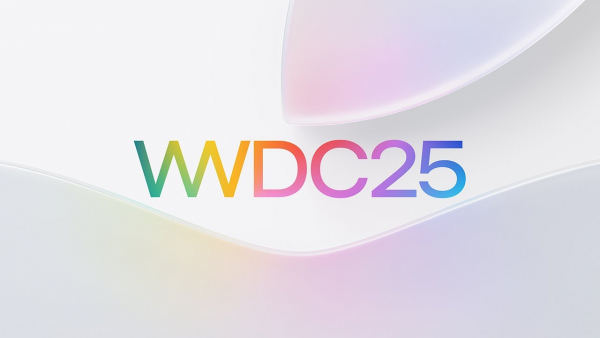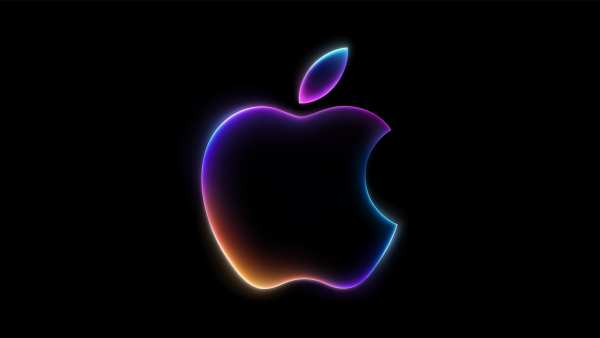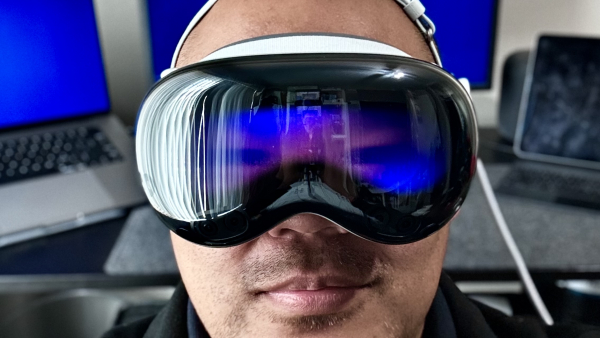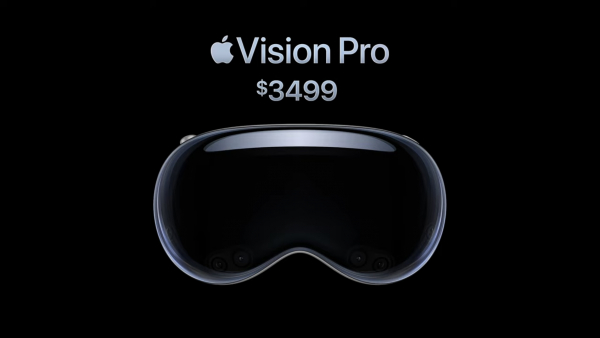Science. Math. Common sense.

WWDC 2025
Fanboys are gonna (rightfully) talk shit about how Apple is so far behind the competition when it comes to AI, but aside from that, Apple announced some solid updates this year. Here are some of the things that I'm personally looking forward to.
iOS
- Liquid Design
- Clear Mode — As someone who has spent an embarrassing amount of time customizing his home screen, I love the idea of optionally switching my icons to Clear.
- Games app — I like the theory that Apple could separate games from the App Store for the purpose of offering a different revenue share for app developers.
- Music app
- Pinned Playlists — FINALLY. It's always been a pain in the ass to find the right playlist or radio station in the Music app while I'm driving.
- Messages
- Chat Backgrounds
- Chat Polls
- Message Screening — YES. So tired of all the spammy texts, especially during election season.
- Group Chat Type Indicators
- Photo Previews — Setting for the Messages app to only send a lower-quality preview of a photo while an iPhone is in Low Data Mode. The full photo will be sent later.
- Clock
- Snooze Customization — FINALLY.
- Phone
- Call Screening
- Hold Assist
- Wallet
- Order Tracking
- Flight Tracking
- AirPods
- Pause-on-Sleep — Nice addition for someone who often falls asleep to podcasts when flying.
- Third-Party Apple Intelligence — BIG ONE. I am desperately hoping social media apps will offer AI-powered smart filters, so I can set up things like, "mute all political posts made by this person".
- Battery Time-to-Charge — FINALLY. Love this for travel.
watchOS
- Wrist Flick Gesture
- Third-Party Control Center Buttons
tvOS
- Profiles on Load — YES. No more dealing with my parents accidentally watching stuff under my Apple TV profile and ruining my watchlist.
macOS
- Spotlight
- Clipboard History — FINALLY.
- Intelligent Actions — AWESOME for power users. I've never been a huge Alfred, Keyboard Maestro, or Raycast user, but this offers just enough functionality that I can see myself getting into this.
- Continuity
- Live Activity
- Phone app
- Folder Icon Customization
visionOS
- Placement Persistence
- Widgets — YES. Big improvement to make my surroundings feel more like my very own digital space.
- Spatial Scenes — This is INCREDIBLE. Photos of my beloved dog look ridiculously realistic now.
- Shared Experiences with other AVP users
- Improved Personas
- Jupiter environment
- Unlock iPhone — YES. Now just need iPhone Mirroring.
- Folders — Finally getting around to some of the basics.
- Look-to-Scroll
iPadOS
- Windows Multitasking — FINALLY. I personally won't be using this that much but this bodes extremely well for the iPad's future.
- Open With… — Definitely feeling more like a desktop computer.
- Preview app
Expressive Robotic Movement by Apple Machine Learning Research →

WWDC 2024 →
A quick rundown of all my most-anticipated announcements (and unannounced tidbits) from WWDC 2024:
visionOS
- Mac Virtual Display — Huge updates for productivity!
- Mouse Support — This makes working with Vision apps and Mac Virtual Display way more seamless.
- Wide and Ultra Wide Screen Options — YES. I can easily see myself downgrading from the 16-inch screen to 14-inch for my next MacBook Pro.
- New Gesture — Way easier and efficient to invoke Home View and Control Center! Also alleviates my annoyance with how inefficient it was to see the time.
- Create Spatial Photos — Fucking. Awesome. All of my food photos can be transformed with AI into Spatial Photos. I've already done a few and this is just mind-blowing. It's hard to describe, but the experience is somewhere between looking at a two-dimensional photo and actually being there in the moment.
- Rearrangeable Home View
- New Bora Bora Environment — Great addition! These immersive environments are going to be such delightful additions like getting new watch faces in watchOS.
- AirPlay Receiver — Not sure exactly how I will use this but I appreciate any feature that let's me bring non-AVP things into my AVP.
- Improved Hand Tracking — Upgraded from 30Hz to 90Hz to make my hands feel more realistic when immersed. (For context, Meta Quest is 60Hz.)
- Improved Full Screen Videos in Safari — Huge improvement for watching videos on YouTube, Hulu, and other streaming services that can only be played on AVP via Safari. This gets the YouTube experience from completely unbearable to totally doable. Nothing will beat a native app but this is good enough to significantly increase my AVP usage.
Apps
- New Passwords App — Goodbye, 1Password! For me, this will be a game-changer for helping me manage my parents' passwords.
- Messages Improvements — Some of these are catch-ups but some are also enhancements to subtly keep iMessage blue bubbles positioned above SMS/RCS green bubbles.
- Scheduled Messages — Finally. I constantly find funny links that I want to send to certain friends but know it's inappropriate to text late at night.
- Easier Tapbacks — Love to see iMessage adopt this from Slack/Discord.
- Text Effects — This will be fun to play around with.
- Messaging via Satellite — Wow. Maybe I can start doing more outdoorsy, off-the-grid type things when I travel?? Very curious to see how this evolves.
- Reminders in Calendar — Goodbye, Fantastical! This alone will save me $57/year.
- Math Notes — Goodbye, Soulver! (Assuming this works as I hope it does.)
- Highlights in Safari — A welcomed enhancement for browsing websites. I like how Apple is using AI to enhance the web instead of trying to replace it like Open AI and Google.
- Redesigned Photos — The navigation is controversial but customizable so we'll see how this pans out.
iOS & iPadOS
- Home Screen and Control Center Customizations — Finally. Not sure how much I will personally use these new options but this should've been implemented years ago.
- Customizable Lock Screen Buttons — I'm looking forward to replacing the bottom-left Flashlight button with Camera and the bottom-right Camera button with Overcast. This just makes so much sense for me when I'm taking food photos with my left hand or opening Overcast when I get in my car.
- Lock/Hide Apps — Finally. Also, this will be awesome for parents who let their kids play with their phones.
- Remote Screen Control during Screen Share — Huge for being our parents' tech support.
- Vocal Shortcuts — Custom voice trigger words!
- Custom Charging Limits — A nice little improvement for maintaining battery health.
- T9 Dialing for iOS — A nice little quality-of-life improvement that is a welcomed copy from Android.
- Calculator App for iPad — Holy. Shit. A basic calculator app should've been added over a decade ago but they just dropped this bomb like Taylor Swift.
- Smart Script for iPad — As someone who has struggled with chicken-scratch handwriting all my life, this thing is absolutely mind-blowing.
AirPods
- Head Gestures — Wow. Such a brilliant feature to answer/reject voice calls.
tvOS
- Subtitles on Mute — A delightful enhancement for such a common use-case.
- InSight for Apple Originals — This won't replace Callsheet for me because it won't have actor ages and heights, but this is a welcomed enhancement that I could see being added to to any video played in the TV app.
watchOS
- Double Tap for Third-Party Apps
- Live Activities
- Distance and Route Maps for More Workouts
- Vitals App
- Custom Ringtones and Text Tones — Finally.
macOS
- iPhone Mirroring — Wow. Apple's Continuity continues to be the gift that keeps on giving! I totally expect this to come to Apple Vision Pro but I'm also curious to see if this will eventually evolve into something like Samsung DeX.
- iOS Notifications on Mac — Fuck yeah. Back in 2011, I wrote about how redundant push notifications will be a problem. Apple went a different route than I proposed but I'm here for it!
- Window Snapping — Finally. Not sure if I will personally use this but this is a welcomed copy from Windows.
- Keep Downloaded for iCloud Files — Big quality-of-life improvement for managing offline assets that are hosted on iCloud Drive.
Apple Intelligence
- Onscreen Awareness and Personal Context — Because the system has an understanding of what you're looking at, what your tendencies are, and what actions your apps can do, Siri can take action inside and across apps. Fucking amazing and I'm dying to play around with it.
- ChatGPT Integration — It's here! It's free! And it's private. (Love how it'll seamless upgrade to ChatGPT Pro too.)
- Priority Notifications — Curious to see how this pans out, especially with the auto-summaries.
- Reduce Interruptions Focus Mode
- Clean Up in Photos — Finally we'll be able to remove people and things from our photos in the native Photos app.
- Smarter Search in Photos — I just want to be able to say, "Siri, show me everything shot on this day."
- "Siri, how do I…?" — Huge for my parents.
- Genmoji — This honestly might replace GIF reactions for me in my daily interactions. Can't wait!
Overall, this would have to be one of the best WWDCs I've seen. It had an excellent variety of quality-of-life improvements, nice catch-ups from Android, meeting AI expectations, and a few mind-blowing announcements. Can't wait to get my hands on the public betas!

Three Months with Apple Vision Pro
Back in 2017, I wrote:
While everyone is talking about next-gen smartphones like the very impressive Galaxy Note 8 and the highly-anticipated iPhone X, I'm more interested in what's being built on top of smartphones that will bridge us to the next big thing — Augmented Reality.
At the time, Apple was on the verge of launching ARKit for iOS developers, which was Apple's first public building block towards the next big (hardware) thing that comes after the smartphone[^1].
Fast forward seven years to today, we finally have Apple Vision Pro (AVP).
The hype cycle has completely come and gone these past few months, but I've been using my AVP every day since launch and I've collected all my thoughts on the hardware, software, and user experience into this post.
Let's get into it.
Former Facebook VP of Virtual Reality on Apple Vision Pro →
Hugo Barra, Facebook's Former Vice President of Virtual Reality and Head of Oculus Division, discusses his thoughts and appreciations of Apple Vision Pro.
Oculus Founder on Apple Vision Pro: "Apple is doing everything right" →
Palmer Luckey, founder of Oculus, discusses his thoughts on Apple Vision Pro.
Does Apple Slow Down the iPhone to Get You to Upgrade? →
It blows my mind how many people preach this conspiracy theory. Marques Brownlee, the one tech reviewer who loves tech without being a fanboy in either direction, explains it best.
New Technology Redefines Jobs, Not Destroy →
Ben Evans explains how new technology doesn't destroy jobs:
New technology generally makes it cheaper and easier to do something, but that might mean you do the same with fewer people, or you might do much more with the same people. It also tends to mean that you change what you do. To begin with, we make the new tool fit the old way of working, but over time, we change how we work to fit the tool. When CC Baxter’s company bought a mainframe, they began by automating the way they already did things, but over time, new ways to run the business became possible.

Introducing Apple Vision Pro
Lots of hot takes immediately dismissing the Apple Vision Pro. They're all short-sighted. Here are some historical fun facts about Apple products:
- iPhone did not get copy-and-paste until the third-generation iPhone 3GS.
- iPhone didn’t get mainstream adoption until the iPhone 4.
- Apple Watch did not have clear killer app until watchOS 3, when Apple doubled-down on Fitness & Health.
- The first-generation Apple Watch had as much compute power as two iPhone 4s.
- When AirPods were first released, it was ridiculed for its looks. Today, AirPods are the gold standard for wireless earbuds and headphone jacks are non-standard on modern flagship smartphones.
So what are people saying about Apple Vision Pro?
"It costs 7x as much as the Meta Quest…"
Yes, that's true. As Ben Evans puts it:
Meta is trying to catalyze an ecosystem while we wait for the right hardware - Apple is trying to catalyze an ecosystem while we wait for the right price.
Both paths are good bets…but I think Apple's vision is smarter.
Zuckerberg envisions everyone wearing VR headsets for most hours of the day, both at work and at home. His belief is that your digital life will be as important as your physical life. To Zuckerberg, living in the digital world is socializing, not isolating.
Apple disagrees. Tim Cook has said for years that the goal is to have AR enhance the real world around you. The Vision Pro is built from the ground up to let interact with both the real world and the digital world at the same time.
Nilay Patel of The Verge, summed it up the best:
Meta Quest 2 is a mid-range Android smartphone on your face.
Apple Vision Pro is a MacBook on your face.
In the pre-iPhone era, the smartphone was thought of as a cell phone with apps. Then Apple launched a mobile computer with a phone app.
If the "metaverse" is going to be a thing, Apple will make it just one dimension of spatial computing.
"The 2-hour battery isn't even long enough for a movie! LOL"
Yup, and that's fine for this v1.0 model! This generation is targeted for developers and will only be used for indoor, stationary situations. The fun begins when it becomes portable, but we need developers to make that meaningful.
"Creepy Black Mirror vibes."
I gotta admit, the spacial camera demo of the father recording his kid's birthday while wearing Apple Vision Pro is a bit cringey…and we all know how Google Glass was rejected. But remember: there was a time when having a camera on a cellphone was considered creepy too.
We'll see how this pans out, but for now, Apple Vision Pro will clearly indicate to others when you are recording.
"I'm not going to walk around with ski goggles on my face."
I'm not planning on it either, lol. But that's fine, because Apple is playing a very, very long-game here.
Overall, Apple Vision Pro is a massive step towards AR glasses. This is a long stop-gap to get developers building on the AR platform until the product is portable to wear outside and affordable enough for the common consumer.
And if there's any tech company in the world that will miniaturize powerful hardware into something the size of a pair of sunglasses, it's Apple.